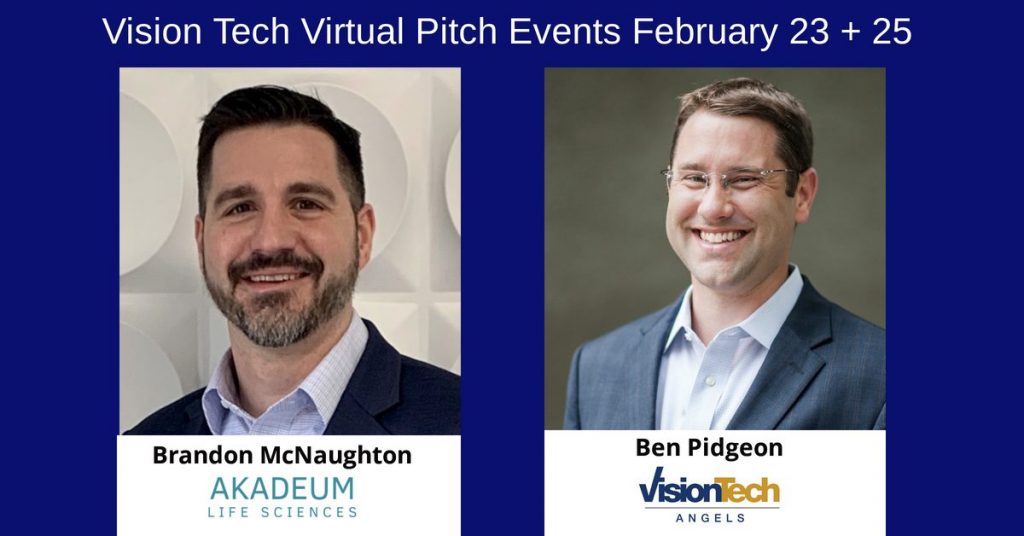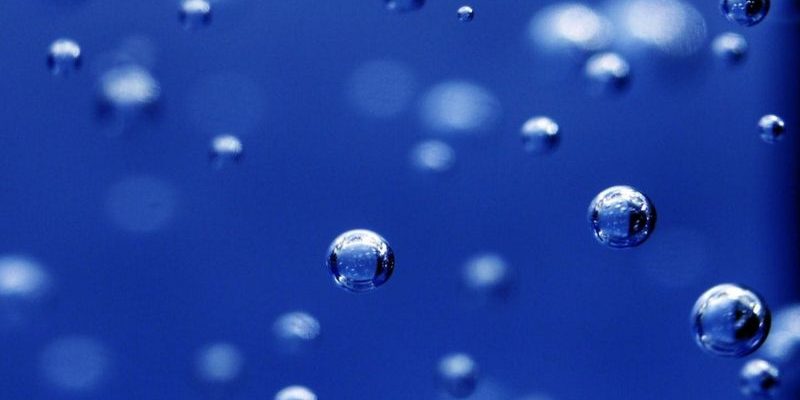Akadeum is a life science company from Ann Arbor, Michigan, founded with the intention of fundamentally changing the way that isolating cells and other biological targets is approached. Their secret sauce for cell separation? Microbubbles. I met Akadeum CEO Brandon McNaughton through Paul D’Amato, one of their investors and a board observer. Paul leads the Michigan Venture Capital Network and thought VisionTech should take a look. Here’s a preview of our second February Pitch Week presenting company, Akadeum.

BP: Let’s start with your elevator pitch, Brandon.
BM: Sure thing. Without the critical step of separation—removing and isolating things like DNA, proteins, or cells from biological samples—many diagnostics and therapies would not be possible. Existing separation technologies have shortcomings that are directly addressed with our proprietary flotation-based technology. Our next generation solution solves major long-standing problems in research and human health through improvement in diagnostics, industrial and biopharma processing, and cell therapy. You can see a demo here.
BP: What unmet need in the market are you filling?
BM: The unmet market need is better, faster, and technically superior separation. Akadeum was formed to address the limitations of currently available separation, which have remained relatively unchanged over the last 40 years. Limitations to current processes include:
Volume limited – preventing efficient large scale production
Low throughput – limiting the number of samples that can be processed
Cumbersome workflow – involving sample transfer and loss
Technician skill dependent – leading to unpredictable results
Labor intensive – requiring significant hands on time
Costly capital: requiring magnets, columns and more complex equipment
BP: What are the advantages of Akadeum’s BACS Microbubbles?
Our major microbubble technology advantage is that we go where other competing technologies cannot go. Advantages include scalability to large volumes such as applications in cell therapy, bioprocessing, and food/water testing. Scalability to large numbers of samples which is applicable to high density testing, digital droplet PCR, single cell sequencing. Our technology is easy to use, with minimal or no equipment.
Our technology also enables yet-to-be-accessed market segments that have matured beyond the reach of existing technologies. Industry needs have evolved and system designs are moving toward higher fluidic volumes, higher density microtiter plates, easier workflows, and more gentle handling of samples. Unlike any other technology on the market, Akadeum addresses all of these areas with an elegant and cost-effective solution.
BP: Who are your ideal customers? Researchers or clinicians?
BM: The short answer is both. Anyone using separation tools and equipment as part of their daily problem-solving and workflow. Our customers include researchers in pharma, biotech and academia; and industry partners where we are working to co-develop and launch new products.
BP: How big is the market?
BM: Simply enormous. Because biological separation is essential in order to perform research, diagnostics, bioprocessing, and cell therapy, the market opportunity is large and growing quickly. The addressable market is well over $5 billion. Each application area alone would support a standalone business.
BP: Who are your competitors?
BM: Our competition is other companies using old technologies that allow for separation of nucleic acids, proteins and cells. There are a few ways of doing this, including use of magnetic particles, acoustics and microfluidics. A few companies using these technologies include Thermo, Miltenyi Biotec and Roche. The Akadeum technology provides for sustained competitive advantage due to the key enabling aspects and our patents of flotation-based separation.
BP: What kind of traction/interest are you seeing?
BM: Several high impact applications have emerged from the use of our research kits. Examples include fast removal of red blood cells to shorten user protocols by hours, dead cell removal for single-cell sequencing and many other applications. We are building on this by deploying additional kits and applications for areas like nucleic acid extraction, single-cell sequencing and liquid biopsies. This has led to multiple industry collaborations with a robust pipeline of additional opportunities.
BP: What will this investment round be used for?
BM: We are focused on commercialization, device development and growth, which will include releasing about 10-20 new research use only kits, enabling additional application areas. In addition to building Akadeum-branded proprietary devices, we will also be securing more partnerships and moving them to commercial agreements. This approach drives the value of Akadeum’s unique flotation-based platform by achieving broad integration and adoption.
BP: Why should VisionTech investors back you?
BM: Several important reasons: we have an industry experienced management team that leads aggressively, a board with operating experience (three in life sciences including the executive chairman), a well-developed strategy, a capital efficient model, unique priority U.S.-developed technology, and the potential for multiple exit partners.
To learn more about Akadeum, visit their website. VisionTech Angels’ February Pitch Events will be virtual on Tuesday, February 23 and Thursday, February 25 at 6 p.m. Pitch events are open to our members and accredited investors interested in joining our group. To register, check your email for an invitation, go to our Events page or email Ben Pidgeon at bpidgeon@visiontech-partners.com.

